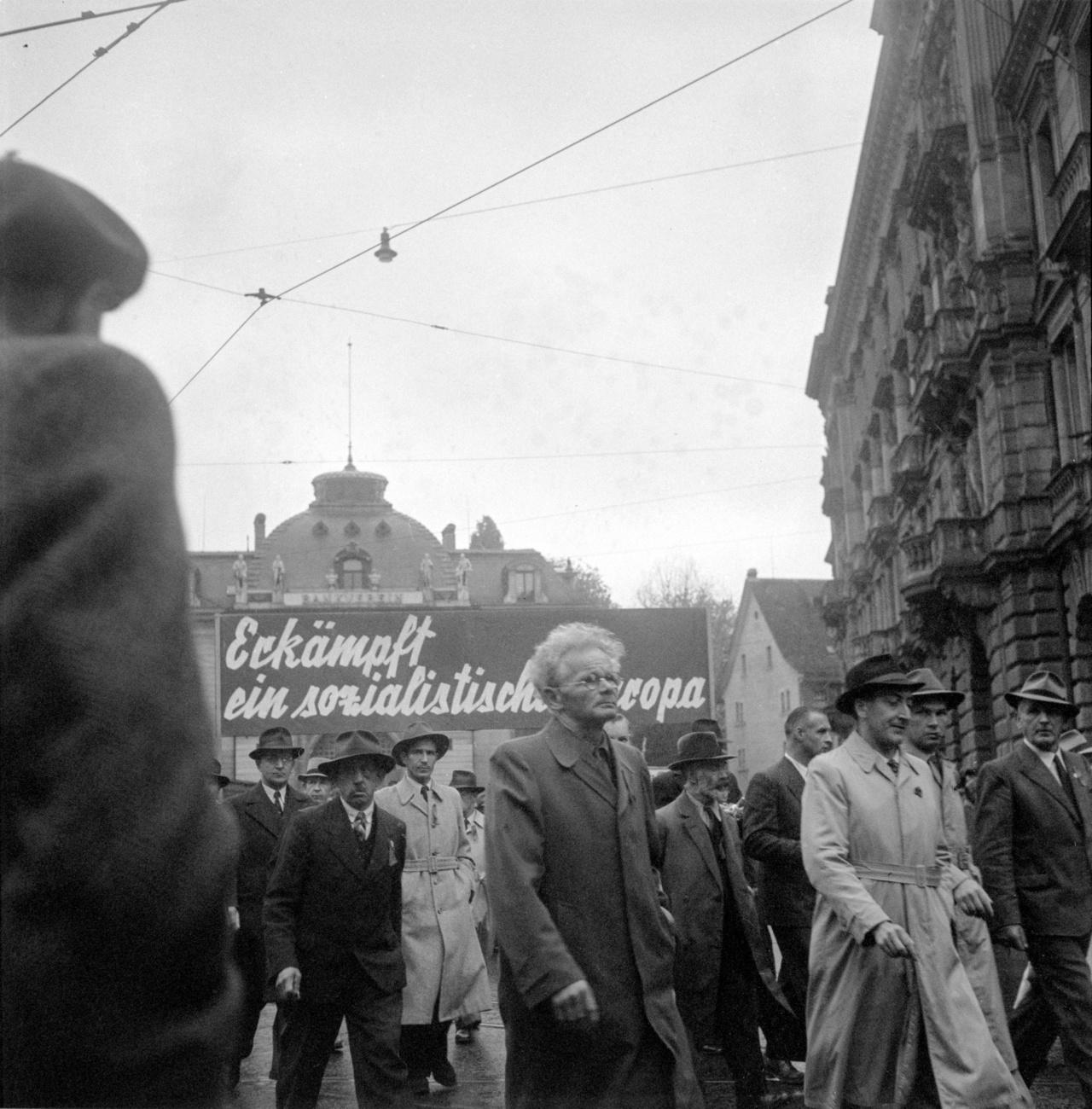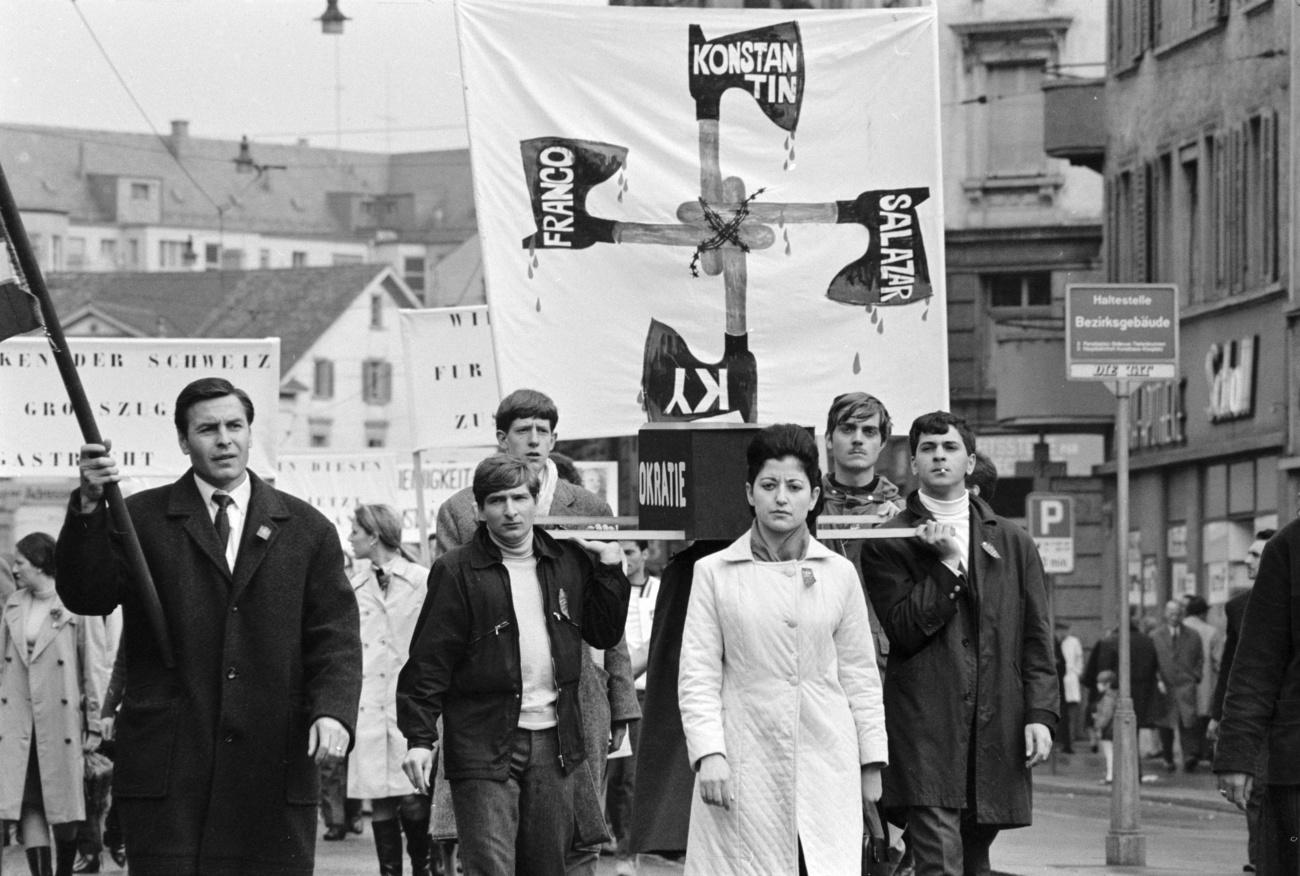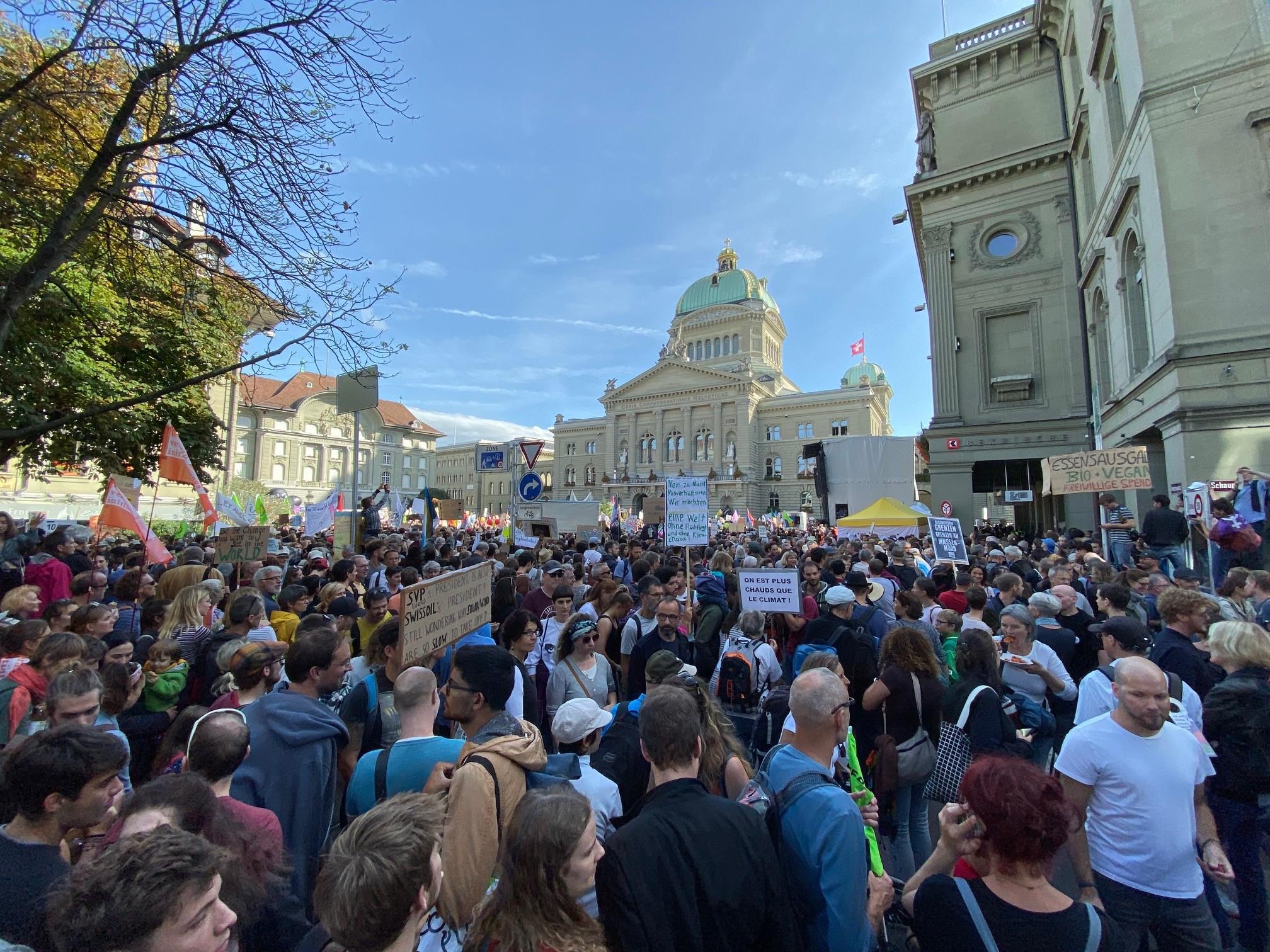Protesting from home: Labour Day and coronavirus

Covid-19 has succeeded where employers, fascists and wars failed. For the first time in 130 years, Labour Day cannot be celebrated in Swiss squares. The pandemic has forced trade unions, parties and social movements to come up with new forms of mobilisation, with protests moving online.
Switzerland is not usually associated with the history of the workers’ movement. Yet it is perhaps the only country in the world where May 1, Labour Day, has been celebrated without interruption since 1890.
Of course, this long tradition is due not so much to the strength of the Swiss workers’ movement – though that’s not irrelevant – as to the fact that Switzerland has remained more or less sheltered from the conflicts and political upheavals that characterised the history of the 20th century.
That said, during the Second World War the authorities obstructed the May 1 celebrations in various ways.
“In Geneva during the war public demonstrations were forbidden and the celebrations were held behind closed doors; elsewhere the authorities resorted to censorship, even preventive censorship, on slogans and banners to avoid friction with the fascist regimes in neighbouring countries,” says historian Bernard Degen.
Nevertheless, May 1 was also publicly celebrated during the war, albeit in a more relaxed tone than usual. But on May 1, 2020, silence will reign in Swiss squares. No slogans or speeches, no music, no sausages and beer.
Virtual squares
In Switzerland, which has been hit badly by Covid-19, public demonstrations – including Labour Day protests – are banned. “And this time, unlike during the war years, the trade unions agree,” Degen says.
Unions and left-wing organisations have moved the Labour Day celebrations into the virtual world. The Swiss Federation of Trade Unions has been streaming a series of eventsExternal link – and the singing tradition of the workers’ movement hasn’t been forgotten.
The May 1 committee in Zurich has transferred speeches and debates to Radio LoraExternal link. At 11am the Zurich chapter of the trade union federation invited its supporters to show from their balconies their support for decent wages for all.
Solidarity was the watchword, with home affairs minister Alain Berset tweetingExternal link that it should not be forgotten when the corona crisis was over.
However, several hundred people did hold a demonstration – with social distancing – in Basel, which was tolerated by police but officers in Zurich broke up small gatherings of protesters, citing security issues.
“In online discussions we will address numerous issues related to the current situation,” says federation spokesman Urban Hodel. “The pandemic is creating a lot of uncertainty; it’s asking us new questions. Never before have we addressed so many issues on May 1.”

More
Why demonstrate on May 1?
But is the union base ready for this step towards digitisation? “The reactions are very different,” he notes. “For reasons of age, some of our affiliates have no particular affinity with digital tools. But in recent years, unions have accumulated a lot of experience in using social networks.”
Where’s the party?
What’s missing, however, is the sharing of convivial moments. Bernard Degen points out that May 1 has always had two aspects: one is political, the other social – getting together, being together. This year there will be no party. And May 1, particularly in Zurich, remains a big holiday for the people.
“Many activists also earn some money with the food stands,” observes Bruna Campanello from Unia, Switzerland’s largest trade union, who has been part of the May 1 organising committee in Zurich for years. But the concerns of the leftwing organisations and activists now lie elsewhere.
“We have accepted, with responsibility, the limits imposed by the pandemic. But it’s clear to all of us that the struggle will become harder, that the pressure on workers will grow,” she says.
She points out that canton Thurgau, one of the few Swiss cantons where May 1 is a public holiday, decided a few days ago to allow companies that could only resume operations on April 27 to remain open on Labour Day to compensate for losses due to the lockdown.
Making your voice heard
“The question arises of how to carry out resistance in the current situation. There are limitations that we accept, but if we don’t open our mouths, it would be very serious. We must keep our heads up and our eyes open,” Campanello says.
The problem is not just about May Day and the trade unions. Many social movements are currently unable to physically mobilise their supporters and take their demands to the streets. First and foremost, the climate movement.
About ten days ago, a procession of cars organised in Zurich to express solidarity with refugees in Greece was broken up by the local police. On April 24, activists placed hundreds of shoes on a square in the same city as a symbol of an impossible protest as part of a global climate rally launched by Fridays for FutureExternal link.
Activists placed rows of boots and shoes in a Zurich square to take the place of protesters who normally come out in person on Fridays to demand action on #climatechangeExternal link l #FridaysForFutureExternal link #ClimateStrikeOnLineExternal link #COVID19External link https://t.co/RuqcwWWYS7External link
— Thomson Reuters Foundation News (@TRF_Stories) April 24, 2020External link
The following day a march against pesticide manufacturers Bayer and Syngenta also took place only in virtual form.
Not even the large climate strike planned for May 15 in Switzerland will be able to repeat the exploits of last September, when tens of thousands of people filled the streets and squares of Bern to demand politicians do more against climate change. The event will be held online.
The ability to innovate
But what impact can political action have that remains confined to the virtual world and within the walls of the home? Can it have the same impact as a large street demonstration?
“The climate movement learnt as early as 2015 in Paris to find ways of expressing itself despite the limits imposed by a state of emergency [declared in France after the terrorist attacks in November 2015],” notes Bern-based activist Payal Parekh, who has experience in coordinating campaigns globally.
“Social networks offer effective tools for action. Just think of the campaign against climate-damaging investments by Credit Suisse, which involved Roger Federer.”
But there are limits, Parekh believes. Digital tools work well, especially on specific issues. Street demonstrations, on the other hand, make it possible to mobilise more broadly, on more general issues. They make it possible to create new contacts, to involve people outside the activists’ circles and to show how many you are. And, last but not least, they provide photogenic images for the media.
“The big demonstrations are undoubtedly important for building the identity of a movement,” says Marco Giugni, a political scientist at the University of Geneva and expert on social movements. “And visibility and capacity for disturbance are decisive for the success of demands. This is what experts mean with the English term ‘disruption’, a fundamental mechanism for obtaining concessions.”
All this is harder to get online, of course. On the other hand, Giugni says that digital tools have become fundamental in coordinating movements and their demonstrations.
“And perhaps the current situation will give a boost to the renewal of collective action,” he says. “The capacity for tactical innovation also plays a primary role in the success of social movements.”

More
Coronavirus: the situation in Switzerland
(Translated from Italian by Thomas Stephens)

In compliance with the JTI standards
More: SWI swissinfo.ch certified by the Journalism Trust Initiative













You can find an overview of ongoing debates with our journalists here . Please join us!
If you want to start a conversation about a topic raised in this article or want to report factual errors, email us at english@swissinfo.ch.